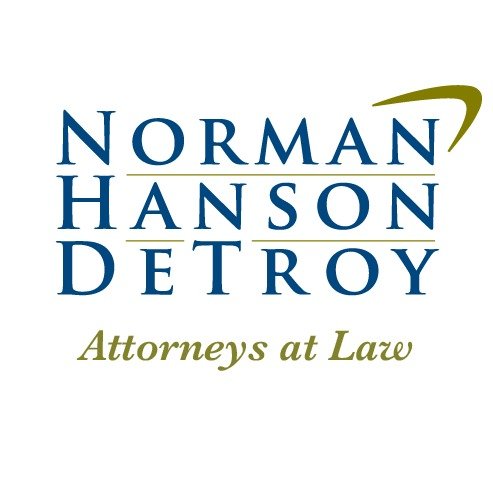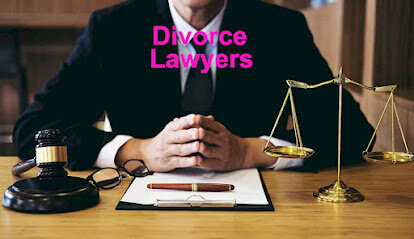Best Nursing Home Abuse Lawyers in United States
Share your needs with us, get contacted by law firms.
Free. Takes 2 min.
Or refine your search by selecting a city:
List of the best lawyers in United States
About Nursing Home Abuse Law in United States
Nursing Home Abuse Law in the United States focuses on protecting the elderly and vulnerable individuals residing in nursing homes and assisted living facilities from abuse, neglect, and exploitation. These laws are designed to ensure that the rights of residents are safeguarded and that facilities meet certain standards of care. Abuse can manifest in various forms, including physical, emotional, sexual, or financial abuse, as well as neglect. Both federal and state regulations apply, ensuring that nursing homes comply with care standards and hold accountable those responsible for any harm to residents.
Why You May Need a Lawyer
There are several situations where one might require legal assistance in the context of nursing home abuse:
- If you suspect that a loved one is experiencing abuse or neglect in a nursing home.
- If you have observed physical injuries, emotional changes, or unexplained financial transactions involving a nursing home resident.
- If the facility has failed to provide adequate medical care or properly respond to injuries or health issues.
- If the nursing home violates federal or state care standards or regulatory compliance.
- If you need guidance on how to report suspected abuse or initiate an investigation.
- If you wish to pursue a lawsuit for damages against a nursing home or staff member responsible for abuse or neglect.
Local Laws Overview
Numerous federal and state laws govern nursing home abuse in the United States. Key federal laws include the Nursing Home Reform Act, which sets the standard for care in facilities receiving Medicare and Medicaid funding. The Elder Justice Act and Older Americans Act also provide frameworks for preventing elder abuse and protecting residents' rights.
State laws vary but generally include statutes regarding elder abuse reporting requirements, ombudsman programs for protecting residents, and legal actions for compensating victims. Every state also has an Adult Protective Services (APS) agency responsible for investigating abuse claims, and many have specific laws regarding the responsibilities and liabilities of nursing home operators and staff.
Frequently Asked Questions
What is considered nursing home abuse?
Nursing home abuse comprises physical, emotional, sexual, or financial harm inflicted on a resident, as well as neglecting their care or failing to protect them from harm.
How can I identify the signs of nursing home abuse?
Signs of nursing home abuse include unexplained injuries, sudden changes in behavior or personality, poor hygiene, staff refusal to allow lone visits, and financial discrepancies.
What should I do if I suspect nursing home abuse?
If you suspect nursing home abuse, immediately report your concerns to the facility management and your local Adult Protective Services agency. It's also advisable to consult with a lawyer for further legal guidance.
Can I sue a nursing home for abuse or neglect?
Yes, you can file a lawsuit against a nursing home or specific staff members responsible for abuse or neglect. An attorney specializing in nursing home abuse can provide guidance on how to proceed.
What compensation is available for nursing home abuse victims?
Victims may receive compensation for medical expenses, pain and suffering, punitive damages, and other related losses, depending on the specifics of the case.
How long do I have to file a nursing home abuse lawsuit?
The statute of limitations for filing a nursing home abuse lawsuit varies by state but generally ranges from one to six years. Consulting with a local attorney can help determine the specific timeframe applicable to your situation.
What role do federal regulations play in nursing home abuse cases?
Federal regulations establish care standards that nursing homes must follow. Noncompliance can be cited in legal cases and reported to federal agencies for further action.
Who investigates reports of nursing home abuse?
Adult Protective Services (APS), local law enforcement, and, in some cases, the state’s Department of Public Health or equivalent body investigate nursing home abuse reports.
Are there specific organizations that support nursing home abuse victims?
Yes, organizations such as the National Center on Elder Abuse (NCEA) and local Long-Term Care Ombudsman programs offer support and advocacy for nursing home abuse victims.
How can I choose the right attorney for a nursing home abuse case?
Look for attorneys with experience in elder law or personal injury, specifically focusing on nursing home abuse. It's important to choose someone knowledgeable about state and federal regulations and with a track record of successful cases in this area.
Additional Resources
For those seeking further assistance or more information on nursing home abuse, consider contacting the following organizations:
- The National Center on Elder Abuse (NCEA)
- The Long-Term Care Ombudsman Program in your state
- Your state’s Adult Protective Services (APS) agency
- The Centers for Medicare & Medicaid Services (CMS)
Next Steps
If you suspect nursing home abuse and need legal assistance, consider the following steps:
- Document any signs of abuse, including photographs, medical records, and eyewitness accounts.
- Report your concerns to facility management and relevant authorities like Adult Protective Services and local law enforcement.
- Consult with an attorney specializing in nursing home abuse to explore legal options and potential claims.
- Research local resources and support organizations that can offer guidance and assistance throughout the process.
Taking prompt action can help protect your loved ones and potentially prevent further abuse or neglect from occurring.
Lawzana helps you find the best lawyers and law firms in United States through a curated and pre-screened list of qualified legal professionals. Our platform offers rankings and detailed profiles of attorneys and law firms, allowing you to compare based on practice areas, including Nursing Home Abuse, experience, and client feedback.
Each profile includes a description of the firm's areas of practice, client reviews, team members and partners, year of establishment, spoken languages, office locations, contact information, social media presence, and any published articles or resources. Most firms on our platform speak English and are experienced in both local and international legal matters.
Get a quote from top-rated law firms in United States — quickly, securely, and without unnecessary hassle.
Disclaimer:
The information provided on this page is for general informational purposes only and does not constitute legal advice. While we strive to ensure the accuracy and relevance of the content, legal information may change over time, and interpretations of the law can vary. You should always consult with a qualified legal professional for advice specific to your situation.
We disclaim all liability for actions taken or not taken based on the content of this page. If you believe any information is incorrect or outdated, please contact us, and we will review and update it where appropriate.
Browse nursing home abuse law firms by state in United States
Refine your search by selecting a state.
















